Over the past 20 years, Nepal has experienced a decade-long civil war, extensive constitutional and political reforms, and horrendous natural disasters that have affected over 6 million people. Nevertheless, Nepal has demonstrated remarkable resiliency throughout these challenges to emerge as the third most improved country in the world in the 2018 Fragile States Index (FSI). The country’s score improved by 3.1 points from the previous year, making this Nepal’s best-ever score in the FSI. In 2018, Nepal improved on nine of the twelve indicators, seeing marked improvements on economic, political, and foreign policy challenges.
Author Archives: fundforpeace
Nepal Enjoys the Dividends of Two Decades of Difficult Decisions
- Thursday, 10 May 2018 15:39
- 0 Comments
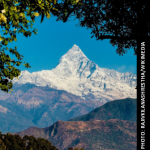
Yemeni Civilians Continue to Incur the Cost of Regional Power Sharing
- Wednesday, 09 May 2018 15:19
- 0 Comments
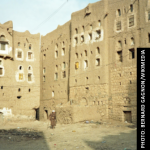
As the civil war in Yemen entered its fourth year, the humanitarian crisis in the country only worsened in 2017 with soaring levels of hunger and malnutrition, an unprecedented spread of cholera, and a widespread campaign of airstrikes on civilian communities. This led to Yemen scoring as the third-most worsened country in the 2018 Fragile States Index (FSI), and continued a long-term worsening trend that has seen Yemen rank as the fourth-most worsened country in the world over the past decade of the FSI, along with Libya, Syria, and Mali. The country has now worsened to become the third-most fragile state in the world.
No Confidence: Political In-Fighting Continues to Plague South Africa
- Tuesday, 08 May 2018 14:13
- 0 Comments
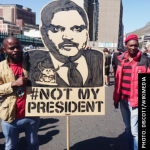
South Africa grabbed the headlines for all the wrong reasons in 2017 with political brawls, corruption allegations, cabinet reshuffles and political infighting. In August, South African President Jacob Zuma narrowly survived an eighth vote of no confidence in his leadership, only to be usurped as leader of the African National Congress (ANC) Party by Cyril Ramaphosa in December. These events follow long-running claims of corruption against Zuma and his cohort. Under former president Thabo Mbeki, Zuma was dismissed from his role as Vice-President after being implicated in a corruption scandal and accusations continued throughout his presidency.
But worryingly for South Africa, the Fragile States Index (FSI) also demonstrated that these were simply the latest events in a long-term decline. In the 2017 FSI, South Africa ranked as the most-worsened country over the preceding decade that was not in a state of conflict, with a ten-year worsening trend that was matched only by the likes of war-torn Libya and Syria for the magnitude of its negative rate-of-change.
Taken to the Cleaners: As Brazil Faces Significant Challenges, Hope May be in Sight
- Monday, 07 May 2018 14:58
- 0 Comments
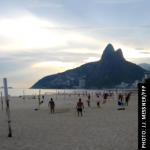
Brazil continued the four-year slide that began in 2014, the year that saw the beginning of Operação Lava Jato (“Operation Car Wash”) as well as the global crash of commodity prices that had driven the Brazilian boom in growth that had helped lift tens of millions out of poverty. In contrast, the intervening years have seen the country roiled by surging unemployment and widening corruption investigations that threaten to engulf the entire political system. These difficulties have encompassed most of the pressures covered by the Fragile States Index, with fully two-thirds of its indicators seeing a significant decline.[1] This year, however, the rate of worsening slowed substantially, with Brazil’s total score increasing by only 0.5 points and, although serious challenges remain, the first tentative signs of economic recovery may be evident.
Stability in the Sahel Region Will Require More Than Just Counter-Terrorism
- Thursday, 03 May 2018 13:00
- 0 Comments
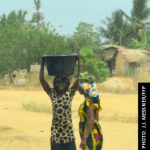
The deaths of four U.S. soldiers in a remote region of Niger in October 2017 suddenly brought the Sahel region of West Africa to the attention of the American public and lawmakers, many of whom were previously unaware of there being any American military engagement in the region. The soldiers and their Nigerien counterparts were reportedly ambushed by fighters loyal to the Islamic State in the Greater Sahara (ISGS), one of the multiple extremist groups operating in the region’s large and sparsely populated desert areas. While the October attack may have catapulted American counterterrorism strategy in the Sahel into the media spotlight, the region is no stranger to regional and international military operations aiming to combat the growth of violent extremism. The Sahel region is now home to a growing alphabet soup of regional and international peacekeeping and counterterrorism operations, from the French-led Operation Barkhane to the G5 Sahel Joint Force and the newly-formed Multinational Joint Task Force to combat Boko Haram.